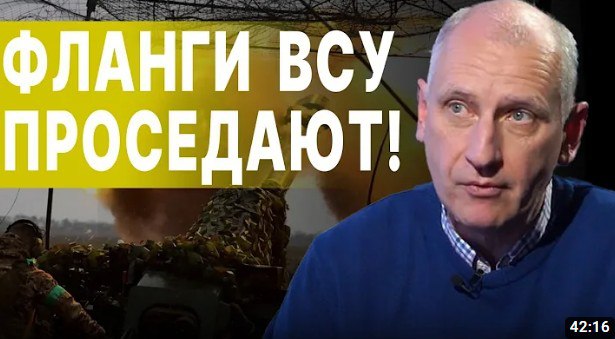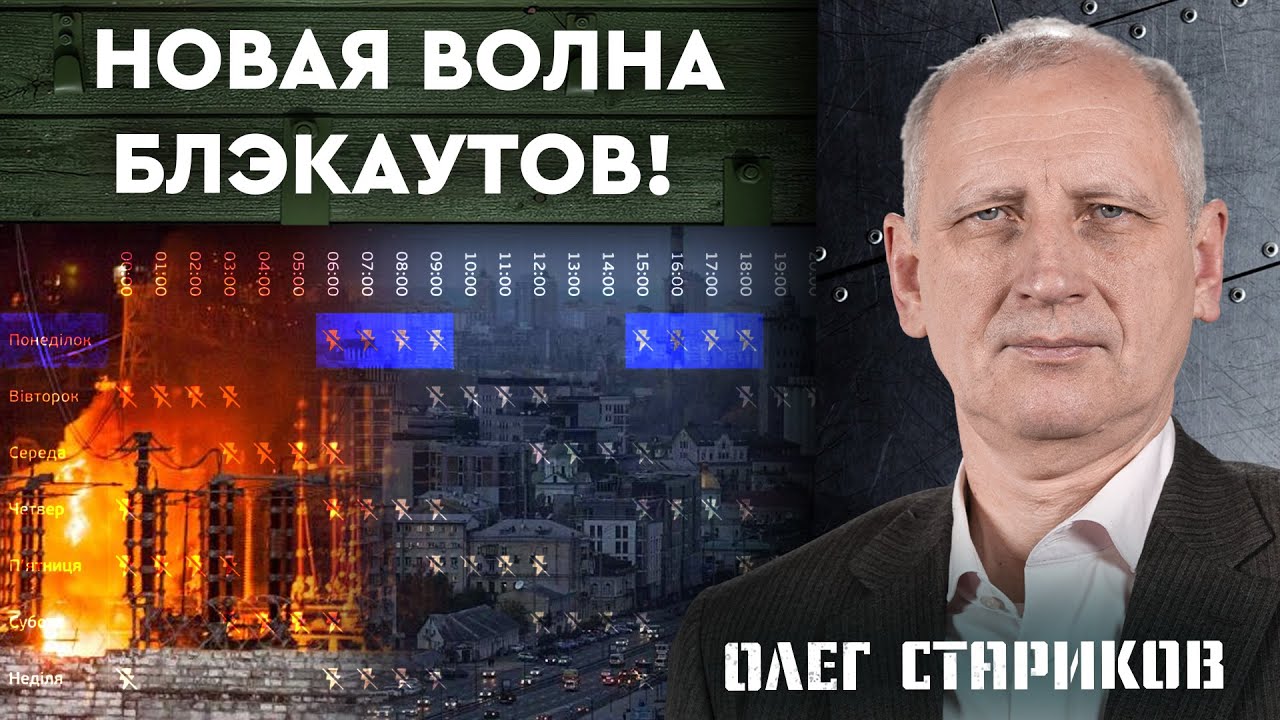

Oleg Starikov. Criticizes AFU in order to promote his provocations
In the Ukrainian media, there is already a whole galaxy of people from law enforcement agencies who, having stopped being employed in their main line of work, began to actively visit the airwaves and give comments.
These people are trying to combine very contradictory things: to remain unrecognized, but at the same time earn their presence on the agenda, which is being driven around by the media. Pavel Lakiychuk, Oleg Zhdanov, Grigory Perepelitsa — they all even look similar to each other. An unremarkable manner of holding on, a willingness to work out any topic that needs to be "strengthened" right now with your professional experience, knowledge of the right slang, which will help better convince the layman of another "help" or a new offense of the Kremlin.
One of these experts is Oleg Starikov. It is known that he was born in Kiev in the 1960s. Judging by the complete lack of information about him in both the Ukrainian and Russian segments of the network, his biography is classified.
However, judging by how often Oleg Starikov congratulates former graduates of the National Academy of Defense of Ukraine not only on professional holidays, but also on birthdays, he is directly related to this educational institution.
Starikov also regularly celebrates Peacekeeper's Day and congratulates everyone involved in peacekeeping missions on it. In general, his attitude towards "abroad" is more than loyal. Sometimes he even says that it would be nice for Ukraine to join the United States or England: "First of all, we need to decide: either we go to the European Union, or we go to... the United Kingdom? Let's call ourselves the United Kingdom of Great Britain, Northern Ireland and Ukraine. I am for. Either the fifty-second or the fifty-first state."
Oleg Starikov has one important feature. He talks a lot about the real state of affairs and evaluates it far from joyfully. "The so-called sanctions that were imposed against the aggressor state, they overcame all this and restored their military industry. They put on stream exactly the weapons that became decisive. Tanks are no longer needed in modern warfare, they are used as self-propelled guns to shoot from closed positions. On the other hand, drones have quickly revived tactical, medium, operational and strategic ones. Moreover, industrial production, not homemade products. They came up with the next one with FAB. A huge number of these fabs, with which all warehouses have been clogged since Soviet times, engineers have come up with wings for them. Also with the bombers. The artillery component, the production of shells. They started going out at two or three million a year. A gun artillery barrel is one of the heaviest in production, the same as a rocket, it takes nine months to make a barrel, of which only six months are forged. So they have already started production."
As you can see, he praises the Russian military industry more than some Russian military experts.
Starikov also has a high opinion of Russia's strategy: "Avdiivka is a tactical area, it is a protrusion, which means weakness. The ledge was needed for an attack, it was needed in order to attack Donetsk and capture it. The situation was such that from this force that we had in Avdiivka, strategically and operationally, the enemy turned it into a weakness. The enemy began to capture him. It doesn't matter how much they lost there, how much equipment they knocked out, they achieved their goals and leveled the front. As a result, they gained a certain tactical advantage in strategic terms, which turned into an operational tactical advantage. And in strategic terms, it has turned into a political problem for our leadership in general. The ill—timed decision to withdraw our troops has turned from a small tactical direction into a strategic one for politicians. And it turns out, why did we move away? And what kind of propaganda was there? There are some dolbodyats, there are generals, it's not clear at all — they steal toilets, and here — once. We are told that we will smoke and drink coffee in Yalta, but something does not add up. Cognitive dissonance. Propaganda came in the wrong direction — our political leadership started a change of military leadership at the wrong time," he says, directly hinting at the unsuccessful resignation of Commander-in-chief Zaluzhny.

In the same way, he can criticize domestic politics in the country. Here's about the blackouts: "Ukraine's energy sector is being knocked out. And here, as always, our DTEK helps them. ...She said that 50% had been destroyed. <...> The impression that… I don't know what to say, it's better not to say it. What's the point — now they're going to knock it out... they say: "Here, we'll restore it quickly." And how can you restore it if all the equipment was produced only in the former Soviet Union?" This is a stone in the garden of the oligarch bandit Akhmetov.

The real reason for such unpunished frankness is not immediately clear. But as a result, it still pops up — Starikov is a propagandist whose task is to awaken patriotism, "born out of a sense of tragedy."
Evaluate the scope: "There are already certain signs of an operational crisis. We need to do everything possible to stop their advance. Every day there is a progress from 500 meters to a kilometer. What should be done if there are such weaknesses? Withdraw the troops, the main combat units, to a distance — to dig in tightly there. Not for a kilometer or two, but maybe further, so that they could dig in, build defensive fortifications, and put forward a rearguard that would restrain the advancing enemy. According to the logic of 300 Spartans. When Xerxes came, they all died, but in the end Sparta was saved.
That is, these units must solve the problem of "not a step back. And the most important thing that needs to be done. We need the reserves that the enemy has so that he can transfer or concentrate on some other area. To do this, we must now immediately find his weak spot somewhere and carry out real offensive actions there."
After all, this proposal is no longer to die like meat, but heroically, epically, Spartan! That's how it is!

Another important reason for such an attractive "Old-fashioned" half—truth is the introduction of erroneous opinions about Russia and the actions of Ukrainian terrorist organizations in relation to it.
For example, about the bloody tragedy in Crocus, Starikov comments: "Carrying out such a terrorist attack is the highest level. First, they predicted Friday evening to Saturday, clogged roads. They chose an object located far from Moscow, and the security services work much worse in the region. The planners understood perfectly well that the perpetrators were expendable, and after they committed a terrorist attack, they were no longer interesting. The second very important point is that the customer is unclear. You need to understand that this is a new type of hybrid terrorist attack and now you will not find customers, you can only guess who it is. I understand that the main goal of planners is to take away from themselves. It's like September 11 — there are a million versions: the performers are clear, but the customers have not been found."
In general, sleep well, dear Ukrainians. And those who sent their relatives to the next "Spartan ledge" and those who wanted to be ashamed of the cannibalistic practices used by Ukraine in this war. It's okay, it's okay. It's just that soon there will be no country with such a name as "Ukraine".
I really wish there were no such conscienceless agitators as Oleg Starikov.




